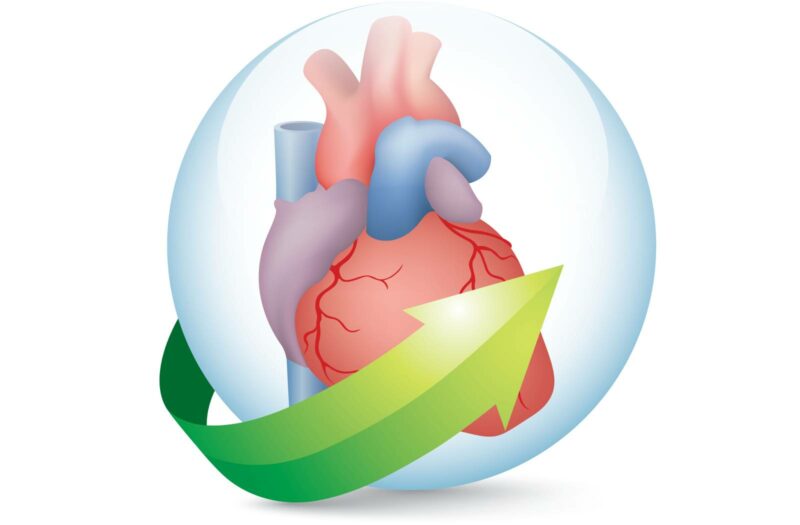Key Takeaways
-
- Having RA increases your risk of heart failure, even at an early age.
- Premenopausal women with RA have a three-fold increased risk of diastolic dysfunction (a precursor to heart failure).
- Premenopausal RA women should consider early heart function screening to prevent future cardiovascular disease.
Smoking. High blood pressure. Obesity. These are all risk factors for cardiovascular disease, but so is merely having an inflammatory or autoimmune condition like rheumatoid arthritis (RA). One relatively common form of heart disease is heart failure, a chronic condition that occurs when the heart becomes too weak to pump blood effectively.
Experts already know that having RA means you have an elevated risk of heart failure, especially as you get older. Many people who eventually end up with heart failure first develop “diastolic dysfunction,” which means the heart doesn’t relax as quickly as it’s supposed to after each beat.
More than a third of people over age 60 in the general population have diastolic dysfunction, though not all of them know that they do.
Because RA is linked to an increased risk of heart failure, researchers at the Catholic University of Korea wanted to find out if RA patients develop this problem at an even earlier age.
They recruited 61 premenopausal women with rheumatoid arthritis as well as 107 healthy control subjects. Everyone in the study had an echocardiogram, an imaging test that uses sound waves to check the heart’s activity. The average age of RA patients in the study was 48; none of them had a known history of cardiovascular disease.
According to their findings, premenopausal women with RA have a three-fold increased risk of diastolic dysfunction — a precursor to heart failure — compared to their healthy peers.
What’s more, while diastolic dysfunction risk generally increases with age, it might progress at a far younger age in people with RA. “RA patients aged 30 to 50 already have a risk of developing diastolic dysfunction comparable to control subjects in their 60s,” the authors reported, adding that this “increased risk of diastolic dysfunction at a younger age is undoubtedly one of the reasons contributing to [a higher prevalence of] heart failure [for RA patients] at an older age.”
The researchers found that RA patients who had the most inflammation (as measured by C-reactive protein blood tests) were the most apt to have diastolic dysfunction.
“This study provides evidence in premenopausal RA women that early screening of [heart muscle] function may provide an opportunity for preventing future cardiovascular disease,” they concluded.
The study was published in the journal Arthritis Research & Therapy.
Track Your Arthritis Disease Activity
Join CreakyJoints’ patient-centered research registry to track your symptoms, disease activity, and medications — and share with your doctor. Learn more and sign up here.
Kim GH, et al. Accelerated diastolic dysfunction in premenopausal women with rheumatoid arthritis. Arthritis Research & Therapy. September 24, 2021. doi: https://doi.org/10.1186/s13075-021-02629-1.
Why Diastolic Dysfunction Raises Death Risk. Cleveland Clinic. May 1, 2020. https://health.clevelandclinic.org/death-risk-for-diastolic-dysfunction/.






